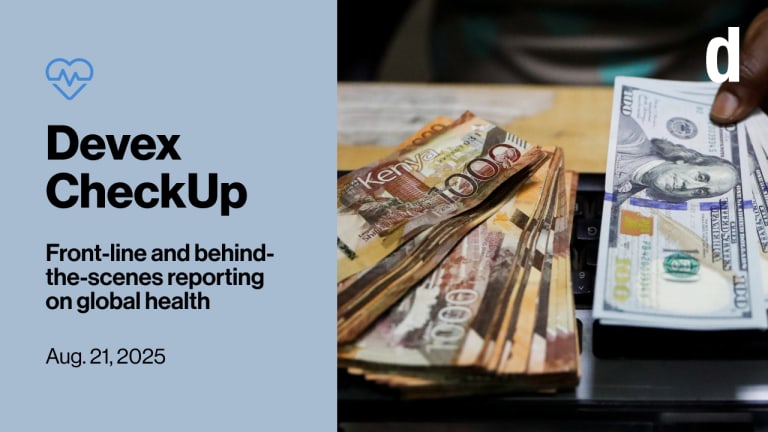
CANBERRA — In 2019, nine out of 10 underreported crises were from Africa — reinforcing the challenge countries face in generating media attention for protracted crises in the region, with North Korea making it back to the list.
The fourth annual list of underreported humanitarian crises from CARE International analyses 40 disasters and conflicts affecting at least a million people to determine which are the most underreported.
“In many countries, climate change is making a constant state of crisis the new norm, often exacerbating other challenges,” Peter Walton, CEO at CARE Australia, explained. “From bushfires to floods, droughts to cyclones, we’re increasingly seeing communities affected by one disaster after another and this is predicted to be a new norm.”
The 2019 “Suffering in Silence” report, published annually since 2017, was expanded to include Spanish and Arabic online media sources in addition to English, French, and German sources previously analysed. This has produced a database of over 2.4 million articles published in 2019 to help CARE identify which humanitarian crises are struggling to gain the global attention they need.
The most underreported humanitarian crises of 2019
Drought, displacement, conflict, epidemics, and food insecurity are the leading causes of the humanitarian crises identified in CARE’s report.
More on media and communications in aid:
► To engage or not to engage: Combating fake news on social media
► Opinion: How the media and NGOs can work together on the complex stories
At the top is Madagascar where 2.6 million people are affected by drought and hunger with more than 916,000 in immediate need of food assistance. In this country 1 in every 2 children under 5 is suffering from stunting, and 2019 saw a large measles outbreak coinciding with the seasonal occurrence of the plague.
From the analysis of media reporting, this crisis was discussed in 612 articles — 0.03% of the total analysed.
“Drought and hunger are relatively slow to unfold, so there don't tend to be many media flashpoints,” Rachel Routley, humanitarian and emergency response coordinator for CARE Australia, told Devex. “Madagascar is also one of the poorest countries in the world, and there's often a very cyclical relationship between poverty and lack of public attention. When people don't have the power and resources to speak up about their needs, those needs continue to go unmet.”
Second most underreported is the ongoing conflict affecting 2.6 million people in the Central African Republic. Despite the signing of a peace agreement in 2019, security remains a concern with reports at the end of the year that the new agreement may be under threat.
Over half of the population requires humanitarian assistance in escaping conflict as well as the impact of conflict. Years of fighting have affected health, water supply, sanitation, and agricultural production patterns, resulting in 41% of the population being “severely food insecure,” according to the report. This is a region where aid workers face high risk in delivering support, with 244 attacks reported in 2019. But only 0.04% of articles analysed covered this ongoing conflict.
Climate-accelerated drought and malnutrition affecting 2.3 million people in Zambia was the third most underreported crisis. Conflict, displacement, and malnutrition affecting 1.7 million people in Burundi was the fourth most underreported, followed by conflict and drought impacting Eritrea.
The hunger crisis affecting North Korea made it the only non-African country featuring on the list, coming in sixth, previously appearing as the most underreported humanitarian crisis of 2017 before dropping from the top 10 in 2018. While media coverage of the leadership, weapon testing and conflicts with other nations featured heavily in 2019, the hunger crisis received coverage in 0.3% of articles analysed, despite an estimated 10.9 million people in need of humanitarian assistance supporting food, health, water, sanitation and hygiene needs.
“North Korea is an interesting example of how geopolitical developments can sometimes draw attention to humanitarian needs,” Routley explained. “In 2018 there was massive media interest in the meeting between Donald Trump and Kim Jong-un, and as a result we also saw some coverage of the hunger crisis in North Korea. But for the most part it goes unreported because it's so difficult for journalists and aid agencies to gain access.”
Of the top 10 underreported crises, seven are regions that have previously been reported — only crises impacting Burkina Faso, Kenya, and Zambia appear for the first time.
The challenges of reporting on Africa
Routley explained that there were a range of likely reasons for the repeated dominance of African nations across the past four reports.
“Media access can often be an issue, though the press freedom index suggests that on a regional level there is greater press freedom in Africa than Asia or the Middle East,” she explained to Devex. “Countries which don't get a lot of international visitors or aren't considered a high priority for global security can also slip under the media radar. Of course, it also has a lot to do with newsroom budgets and audience interest.”
Among Australian media outlets, for example, there were none with a permanent correspondent in Africa, she said.
But crisis fatigue is also a challenge.
“This is a real risk as climate change makes long, drawn-out crises the new norm,” Routley said. “An earthquake or tsunami is a distinct event with high news value, but it can be hard to keep people interested in a multi-year drought.”
Improving media visibility
The report contains recommendations CARE has produced for media, governments, policy makers, aid agencies, businesses, and the public to help overcome the challenges of drawing global attention to these crises — including considering reporting as a form or condition of aid, highlighting stories of hope, and focusing on people and solutions.
As climate change plays an increasing role in weather-related disasters world-wide, the media needs to better balance the needs of domestic and international reporting, Routley said.
“Domestic and international reporting shouldn't be an either-or,” Routley said. “As the global north begins to see the effects of climate change in the very tangible ways that people in the global south have for quite some time, we'd hope to see increased attention given to the latter.”
Find out more in our Devex-produced tableau interactive about the 10 most underreported humanitarian crises.








